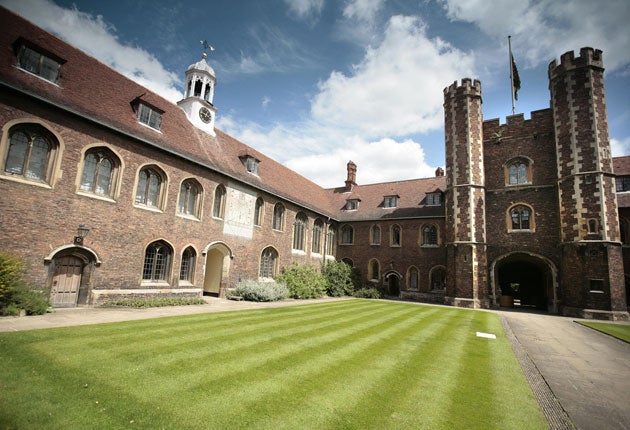Half of Cambridge students admit cheating

Your support helps us to tell the story
From reproductive rights to climate change to Big Tech, The Independent is on the ground when the story is developing. Whether it's investigating the financials of Elon Musk's pro-Trump PAC or producing our latest documentary, 'The A Word', which shines a light on the American women fighting for reproductive rights, we know how important it is to parse out the facts from the messaging.
At such a critical moment in US history, we need reporters on the ground. Your donation allows us to keep sending journalists to speak to both sides of the story.
The Independent is trusted by Americans across the entire political spectrum. And unlike many other quality news outlets, we choose not to lock Americans out of our reporting and analysis with paywalls. We believe quality journalism should be available to everyone, paid for by those who can afford it.
Your support makes all the difference.Nearly half of Cambridge University students cheat, according to a survey.
The Varsity student newspaper said 49 per cent of undergraduates claimed other people's work as their own while studying at the world famous institution.
The anonymous online poll of more than 1,000 students found those studying law were most likely to plagiarise, with 62 per cent saying they had broken university rules.
Despite the high number of incidents, the survey showed 80 per cent of students felt punishments meted out by the university were sufficient.
But just 5 per cent said they had been caught plagiarising.
"It is a depressing set of statistics," Robert Foley, a Professor in Biological Anthropology at King's College, told Varsity.
According to the survey, 82 per cent of essay plagiarists used internet site Wikipedia as their source.
One student, speaking anonymously to Varsity, said: "Sometimes, when I am really fed up, I Google the essay title, copy and throw everything on to a blank word document and jiggle the order a bit. They usually end up being the best essays."
The university was unavailable for comment.
But a spokesman told Varsity it regarded plagiarism as a "serious and potentially disciplinary offence which can lead to failure to obtain, or withdrawal of a degree".
He said the university was planning to introduce detection software to crack down on the problem.
Subscribe to Independent Premium to bookmark this article
Want to bookmark your favourite articles and stories to read or reference later? Start your Independent Premium subscription today.
Join our commenting forum
Join thought-provoking conversations, follow other Independent readers and see their replies
Comments